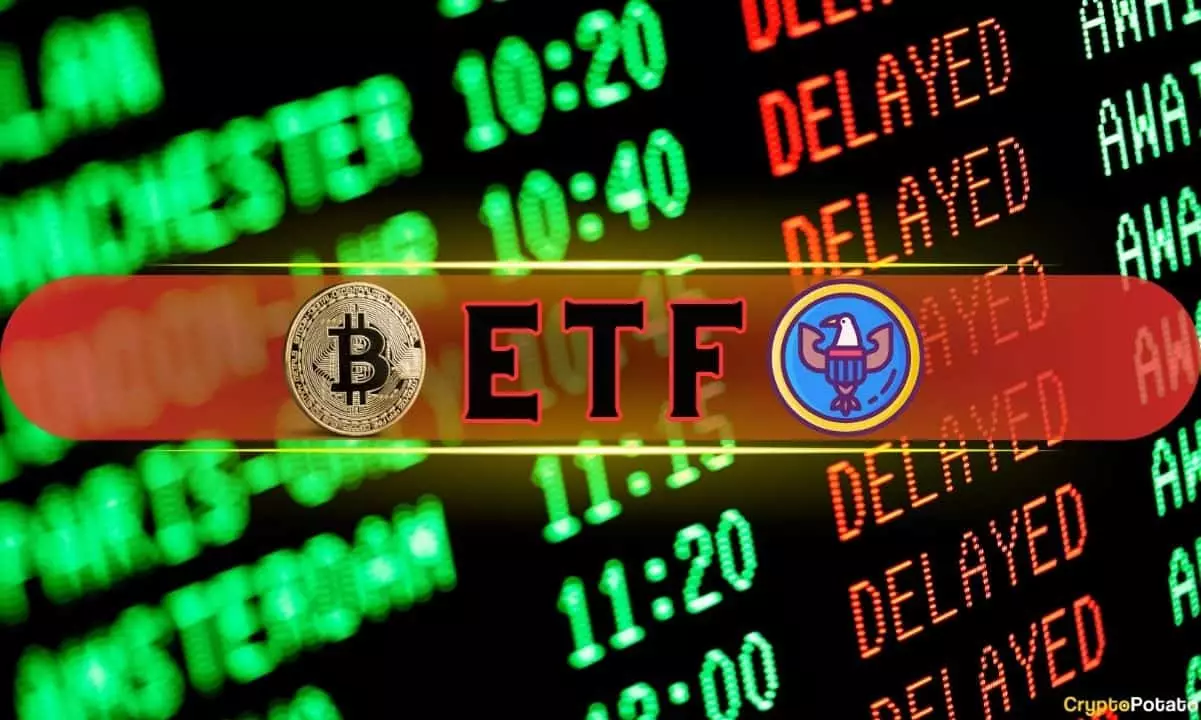The recent decision by the U.S. Securities and Exchange Commission (SEC) to postpone its verdict on the Truth Social Bitcoin ETF reflects a broader pattern of cautious rigidity cloaked in procedural formality. While the agency claims to want public input and thorough review, one can’t help but see these delays as strategic maneuvers that serve to stifle innovation while maintaining regulatory dominance. The Trump-backed proposal, filed by NYSE Arca, sits under a cloud of uncertainty, revealing the SEC’s reluctance to fully embrace emerging financial instruments that challenge traditional frameworks.
This indefinite postponement exhibits an underlying bias—a clear signal that the SEC remains wary of allowing a Bitcoin ETF with direct exposure to bypass traditional scrutiny. Such delays serve to preserve the status quo: institutional control over investment products and the avoidance of rapid decentralization that could threaten their regulatory authority. By inviting comments yet dragging decision timelines, the SEC ensures the space remains contested, not streamlined. This tactic feeds into a broader narrative that cryptocurrency is too volatile or risky, a pretext conveniently used to justify delays and maintain conservative investor protections—protectionism disguised as prudence.
The Political Winds and Ideological Shifts as Catalysts
The recent move under the Biden administration’s appointees might be viewed as a cautious approach rooted in risk aversion. However, the incoming leadership changes associated with the Trump administration’s influence introduce an intriguing possibility: a shift toward favoring more market-friendly policies, including a quicker green light for crypto-related funds. While some see the SEC’s hesitation as purely regulatory turf defense, it’s undeniable that political interests play an outsized role. Under current leadership, delays may be less about safeguarding investors and more about controlling innovations that could democratize investing or challenge entrenched financial institutions.
The administration’s apparent openness to applications like the Truth Social ETF and others featuring diverse digital assets signals a potential pivot. Forward-looking analysts, including Nate Geraci, suggest that with the new political landscape, there’s a tangible chance that these proposals might finally see the light of day. This could be a turning point—more than just regulatory softening, it would be a redefinition of the state’s role in financial markets, potentially ushering in a more open, albeit still cautious, approach to crypto ETFs.
Market Dynamics and the Future of Cryptocurrency Funds
Do these delays threaten to stifle innovation, or are they necessary checks in a rapidly evolving space? There’s a case to be made that overly cautious regulation can inhibit progress, but from a center-right perspective, safeguarding the integrity of investment channels remains paramount. The SEC’s extended review period may be frustrating, yet it underscores a fundamental point: this isn’t just about cryptocurrencies; it’s about the legitimacy and stability of the financial system at large.
The burgeoning backlog of crypto ETF applications—ranging from BlackRock’s ETH Trust to WisdomTree’s XRP funds—serves as a barometer of market appetite and regulatory resistance. The fact that the SEC is moving some of these dates closer together signals a recognition of the mounting investor demand, yet it also exposes the agency’s internal contradictions. While the delay tactic persists, an underlying realization seems to be dawning: the digital economy’s potential cannot be indefinitely ignored if the U.S. intends to maintain its competitive edge.
The possibility of approvals in the coming months sends a mixed message. On the one hand, it suggests that the regulatory framework is slowly adapting and that the government recognizes the importance of crypto assets. On the other, it exposes the fragility of this nascent regulatory framework—subject to whims of politics and leadership. For advocates of a pragmatic, market-oriented approach, the key takeaway is clear: the future of crypto ETFs hinges not solely on technical merit but on the strategic interplay between regulators and political stakeholders.

